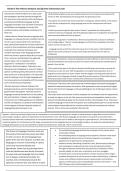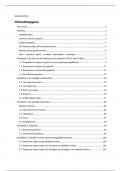Summary
Summary Dante’s The Inferno Analysis and Quotes University Level
- Course
- English (ENGL2008)
- Institution
- University Of The Witwatersrand (wits)
A 2nd-year level of analysis, breakdown of the character and poet Dante, historical and contextual background of the text, and quotations of Dante's Inferno.
[Show more]




